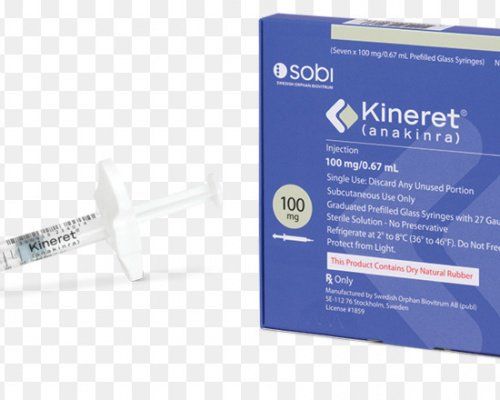This is an automatically translated article.
Pizonmaxi is an NSAID pain reliever, antipyretic, anti-inflammatory drug, containing the main ingredient is Indomethacin, 25mg content, the drug is packaged in a box of 10 blisters, each blister contains 10 hard capsules. The drug works to treat inflammatory diseases such as rheumatoid arthritis, osteoarthritis, acute shoulder pain, gout causing acute joint pain... So how effective is Pizonmaxi in reducing pain and inflammation in clinical practice?
1. What effect does Pizonmaxi have?
Pizonmaxi medicine contains Indomethacin, a non-steroidal anti-inflammatory agent, which relieves pain and treats mild to moderate and severe inflammatory diseases of musculoskeletal. Indomethacin is a derivative of indolacetic acid, which has analgesic, anti-inflammatory, antipyretic, and platelet aggregation inhibitory effects. The mechanism of action of indomethacin is not fully understood, but scientists believe that the drug acts biologically by inhibiting prostaglandin synthetase and preventing the production of prostaglandins, thromboxane and other products of the enzyme cyclooxygenase. The inhibitory effect on platelet aggregation disappeared within 1 day after discontinuation of the drug, bleeding time returned to baseline. In addition, drugs that inhibit the synthesis of prostaglandins D2, E2, I2 reduce renal perfusion. After oral administration, Pizonmaxi drug is rapidly absorbed, reaching maximum drug concentration after taking about 1-2 hours. Bioavailability of the drug is 100%. When taken with food, the absorption of the drug is slightly reduced, bioavailability is unchanged. Indomethacin is mainly bound to plasma proteins (about 99%). The drug is distributed into the synovial fluid, crosses the placenta and the blood-brain barrier, is present in human milk, and is found in saliva. Pizonmaxi drug is metabolized mainly by the liver, about 60% of the dose is excreted by the kidneys unchanged and metabolized, the remaining 33% is excreted in the feces.
2. Indications and contraindications of Pizonmaxi
2.1. Indications Pizonmaxi is used in the following diseases:
Patients with moderate to severe osteoarthritis. Rheumatoid arthritis, acute gouty arthritis. Ankylosing spondylitis, acute painful shoulder disease such as tendinitis, bursitis. 2.2. Contraindications Do not use Pizonmaxi in the following contraindications:
Patients who are allergic to drug components: Indomethacin, other NSAIDs. Patient has/has a history of peptic ulcer. Patients with severely impaired liver function, severely impaired kidney function. Do not use Pizonmaxi drug for pregnant women and nursing mothers.
3. Dosage and how to use Pizonmaxi
How to use: Pizonmaxi is used orally. The patient should take the hard capsule whole with a glass of water just enough, can be taken whenever related to the meal, if the patient is easily irritated, should take Pizonmaxi after eating.
Dosage: Depending on the stage of the disease, the patient's clinical signs of pain and inflammation, the dose of the drug can be changed and adjusted, the patient should follow the instructions from the doctor or refer to the recommended dose. Following:
Dosage in rheumatoid arthritis, osteoarthritis, ankylosing spondylitis: Take 3 times a day, 25 mg each time. .Dosage in acute shoulder pain: Take 75-150 mg daily, divided equally into 3 to 4 times. Dosage in acute gouty arthritis: Oral 150mg divided into 3 times, 50mg each time.
4. Unwanted effects when using Pizonmaxi
Undesirable effects when taking Pizonmaxi drugs often occur on the gastrointestinal tract including: Nausea or vomiting, loss of appetite, abdominal pain, digestive disorders causing constipation, diarrhea, possible ulcers or complications. Perforation or bleeding in the stomach, intestines...
Immediately notify the doctor about unwanted effects when using Pizonmaxi.
5. Notes when using Pizonmaxi
Patients need to list a list of prescription, non-prescription or other drugs that you are using to your doctor, there is an interaction between Pizonmaxi and other drugs such as avoiding the combination of drugs with other NSAIDs. or aspirin, anticoagulants. When used together with these drugs may appear more side effects of Pizonmaxi. Pizonmaxi should be used with caution in patients with a history of gastric or duodenal ulcer disease, heart failure or coagulopathy, or elevated blood pressure. Children under 15 years old, the elderly need a prescription from a doctor. Pay special attention when patients have infections, epilepsy, mental disorders, Parkinson's disease. The drug is contraindicated for use in pregnant women, breast-feeding women do not take Pizonmaxi. When the patient needs to drive a vehicle or operate machinery, if there are no abnormal signs in the gastrointestinal tract, they can safely use the drug. The above is information about Pizonmaxi, an oral drug that is effective in many inflammatory diseases with signs of swelling and pain such as in the musculoskeletal system, tendon soft tissue, fluid... However, patients should not use the drug on their own. , need to use Pizonmaxi medicine as prescribed by the doctor. If you have any questions or concerns about Pizonmaxi, please contact your pharmacist, doctor, or specialist for answers.













